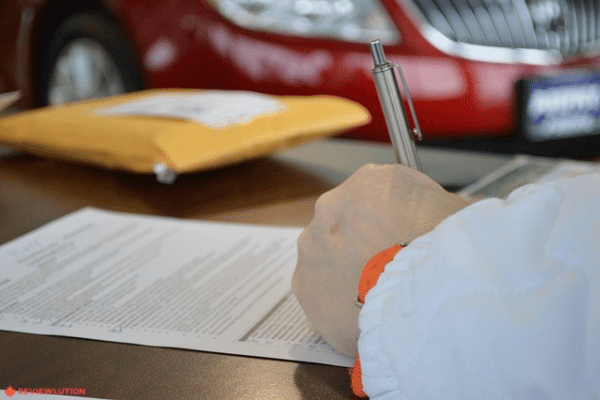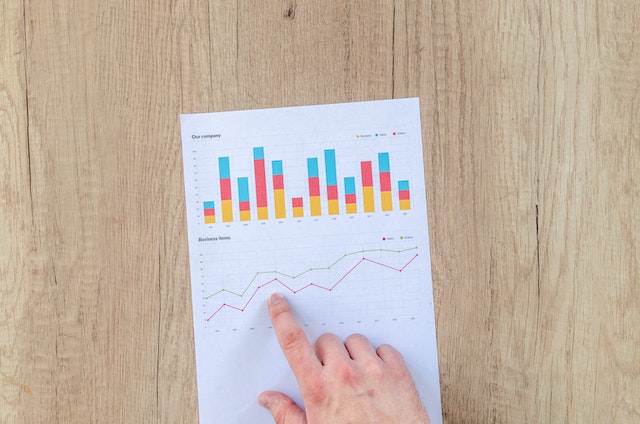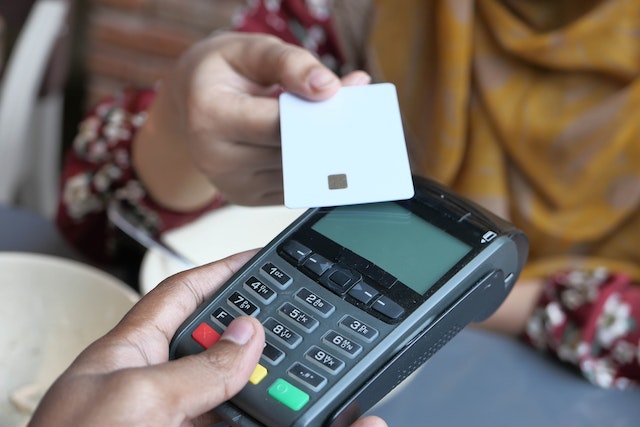Personal Loan Alternatives: Top 5 Backups
Personal loans can be a handy resource when you need quick cash, but they come with very high interest rates and strict approval criteria. If you can’t qualify or the APR is too rich for your budget, it’s time to take a look at personal loan alternatives.
Keep on reading to find out what options are available in Canada and how to choose the right one for you.
What Is a Personal Loan?
When you take out a personal loan, you borrow a certain amount of money and pay it back in regular instalments (including the interest and fees set by the provider).
Loan amounts range from $500 to $35,000 and terms can go from 6 to 60 months. Since the amount you can borrow is not as high as mortgages, most people use personal loans to pay for the purchase of a car, home renovations, or to consolidate debt. Personal loan lenders charge higher interest than mortgage providers (although by law, the rate cannot go over 60% a year).
In general, you should be looking at personal loan alternatives if you
- Cannot meet the eligibility criteria of most lenders—Lenders want to see a good or excellent credit score and a regular income to approve the loan. Some loan providers may accept borrowers with bad credit or no income, although they are very rare;
- Need a lower or higher amount than what personal loans offer—Personal loans can be as low as $500, although these are not that common. In fact, the majority of personal loans in Canada start at $3,000;
- Want a longer or shorter term—Most personal loans have a repayment term of 5 years or less.
Top Personal Loan Alternatives
Here are the best alternatives to personal loans in Canada.
Line of Credit
A line of credit is similar to a credit card as you are borrowing money against an existing credit limit. This means you can tap into your line of credit as often as you need to, provided you stay under the preapproved credit limit and pay back a percentage of the amount you spent every month.
Not only are lines of credit more flexible than personal loans, but they also come with lower interest rates. What’s more, with this financing option, you only pay interest on the money you borrow rather than the entire loan amount, which makes it more affordable in the long run.
In terms of qualifying, you’ll usually need to meet the same requirements as a personal loan. So, if you aren’t eligible for a personal loan, chances are you won’t be able to get a line of credit either.
- Best for: Borrowers who can qualify for a personal loan but want flexible access to funding and repayments.
- Not that great for: Those who don’t have financial discipline. Having easy access to credit can easily lead to overspending and financial problems.
Home Equity Loans
A home equity loan lets you borrow money by using the equity in your house as security. The money you receive can be paid out as a standard loan, i.e., a lump sum, or as a home equity line of credit (HELOC), although these are separate products so different rules apply when it comes to interest and repayments.
Since you are using your home as collateral, you can get a lower APR than most unsecured personal loans. You can also borrow a larger amount of money (depending on how much equity you’ve built up in your home) which you can put back into the house through home renovations, spend on ongoing expenses or use as a downpayment for another property.
Bear in mind that you must make timely payments on a home equity loan as failure to repay the debt could cost you your house.
- Best for: Borrowers who have built up enough equity in the home and are comfortable with longer loan terms
- Not that great for: Loan applicants who don’t have the money to pay for upfront fees, such as appraisal, title search and legal charges.
Peer-to-Peer Loans
A peer-to-peer loan is when you borrow from individual investors rather than a bank or credit union. Borrowers can connect with potential investors through an easily-accessible P2P lending platform.
This personal loan alternative offers more flexibility regarding payment terms and interest rates. Investors might also be more willing to overlook certain issues in your credit history, although most would still only fund applicants with good or excellent credit scores.
Speaking of credit score, applying for P2P loans involves a soft credit pull, so the impact on your credit rating won’t be as noticeable.
On the downside, P2P loans can take longer to process and might come with higher origination fees than what you’d get with direct lenders. Also, peer-to-peer lending is new in Canada and not as strictly regulated as other financing options.
- Best for: Borrowers interested in trying out new lending markets and looking for loans with wiggle room on the interest rates and repayment terms
- Not that great for: Borrowers who need urgent funds as P2P loans can take up to a week to process
Cash Advance
A cash advance works like a loan you take against the credit limit on your credit card. Most of the top-rated credit card providers in the country allow cardholders to take out a larger amount of money from their credit card limit, both in Canada and while they are overseas. This way, their clients can get instant access to cash whenever they need it, without having to apply for another loan.
A cash advance, though, is not the most affordable way to borrow money. There are no grace periods and no opportunity to win rewards or cashback on your credit card. You would also need to pay an average fee of $5 or $7.50 for money withdrawn in Canada and abroad, respectively.
Last but not least, the interest rate is much higher, going up to 25% rather than the 20% you pay for regular use of your credit card.
- Best for: Borrowers who need fast cash to cover urgent expenses
- Not that great for: Those who want a low-cost loan
Payday Loan
One of the most popular personal loan alternatives, a payday loan lets you borrow a lower amount of money—typically up to $1,500—which you need to repay with your next paycheck.
Payday loans are one of the easiest to qualify for since there are no credit checks involved in the lending process. Usually, all you need is proof of regular income and a permanent address. They also pay out very fast (within 24 hours), making them a great choice for those in need of quick cash.
The biggest problem is the cost. According to the FCAC, payday loans may end up costing you 7 times more than any of the personal loan alternatives described above. On top of that, rules regarding these loans differ among provinces, so you might face stricter payment schedules or qualifying criteria depending on where you live.
- Best for: Borrowers with bad credit who don’t have any collateral to offer
- Not that great for: Borrowers looking for more repayment flexibility and lower APRs
Note: Like most loans that do not require a credit check, car title loans and pawn shop loans can provide fast funding, but are not any more affordable than payday loans. Both types of financing options also require some kind of collateral (your car or personal assets) which you could end up losing if you default on your payments.

How to Choose the Right Financing Option?
Before you decide on a financing option, you need to do thorough research into how suitable each one would be for you.
Here’s what you need to consider.
Interest rates
Although your credit rating usually determines the APR you are offered, interest rates can vary greatly among lenders. That’s why it is important to compare as many options as possible to find the lowest-cost loan for your needs.
Collateral requirements
What you put up to secure the loan (your house, car, personal assets), acts as a safety net for the lender in case you can’t repay the money or don’t stick to the terms of the agreement. Secured loans come with much lower APRs, but you should calculate if lower interest is worth putting ownership of your home at risk. You may want to look at unsecured loans first and see if any offers meet your requirements.
Processing times
Most people opt for personal loans because they need emergency funding for unexpected expenses, so speed is of the essence. When looking at personal loan options, think about how long the process will take. Lines of credit and payday loans are typically paid out faster, whereas P2P and loans from banks and credit unions tend to take longer as borrowers undergo stricter eligibility criteria.
Repayment terms
The length of the loan and how and when you repay is a crucial aspect to consider. Long-term loans such as HELOC are costlier than short-term financing options like instalments or payday loans. What’s more, weekly or bi-weekly instalments can cost you more over the short term but will help you repay your debt faster.
Fees and penalties
Be sure to ask about early and late repayment penalties—most lenders will charge a hefty sum if you settle the loan before the due date or miss an instalment. You may find yourself unable to keep up with payments and opt for a debt consolidation loan or you could come into an inheritance that would allow you to pay off the debt early. It’s best to be informed about these things sooner rather than later.

The purpose of the loan
If you are looking to finance a bigger purchase (such as making a deposit on a home), you will need a larger sum, so credit cards and lines of credit are a less viable option. These loans, on the other hand, would work better if you need some extra cash every month to cover expenses.
Think about your needs and requirements before settling on a personal loan alternative.
FAQ
Payday loans are usually the easiest and fastest loans to get approved for. Those who need instant cash can also get a car title loan or a pawn loan—both pay out almost instantly but are riskier since you are putting your personal assets as collateral.
Payday loans have notoriously high interest rates, so you may want to look into cheaper alternatives, such as a cash advance on your credit card, a personal line of credit or a peer-to-peer loan.
If you need cash fast but are not able to get a loan, you could ask friends or family for a loan or get an advance on your salary. Alternatively, you could try and split up a bigger purchase into several instalments with a Buy Now, Pay Later service. If you prefer not to be tied down by loans or repayments, you can earn a little extra on the side—there are several options, from paid survey sites to passive income generators.
The best loan for you depends on your personal financial situation and your needs. For instance, if you have equity in your home and you need a sizable loan, a home equity loan may be the best choice for you. On the other hand, if you have a poor credit score and need money fast, you might want to consider personal loan alternatives such as payday loans or a line of credit.










